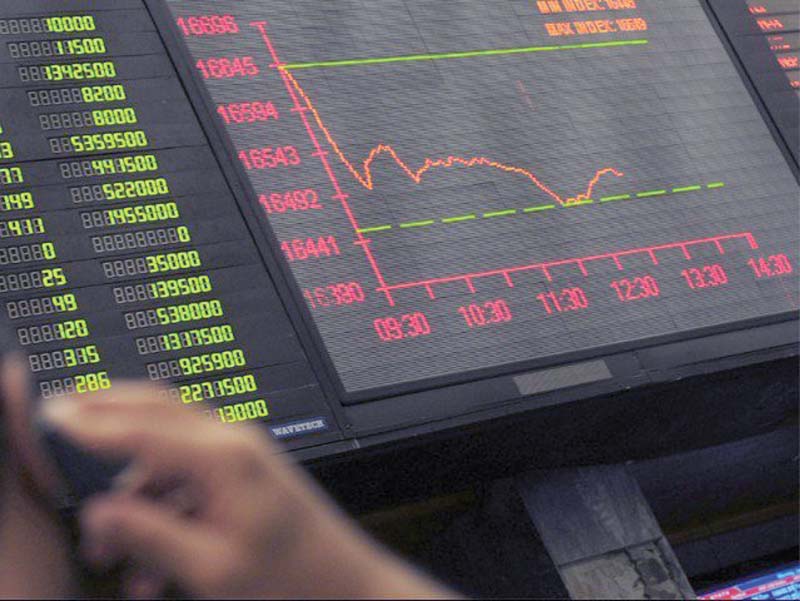
The Indian government on Monday revoked the special status of occupied Kashmir and rushed through a presidential decree in a bid to fully integrate its only Muslim-majority region with the rest of the country, hours after imposing a major security clampdown in the region.
Following the development, the benchmark KSE-100 index, which was already on a downward trajectory, plummeted and fell below the 31,000-point mark. Selling pressure was witnessed in stocks across the board.
Home Minister Amit Shah told parliament that the president had signed a decree abolishing Article 370 of the constitution, which gave special autonomy to the Muslim-majority Himalayan region.
The market was down due to "India, Kashmir and Pakistan issue," Alpha Beta Core CEO Khurram Schehzad said while talking to The Express Tribune. The decision had also pulled Indian stock market down, Schehzad added.
"Mumbai stock market was down 642 points, trading around 36,476 points. The stock market slipped below $1.9-trillion value after almost two years."
Earlier, the PSX was down due to economic slowdown, hike in key interest rate and massive rupee depreciation over the past two years.
At the end of trading, the benchmark KSE 100-share Index recorded a decrease of 485.61 points, or 1.53%, to settle at 31,180.80.
JS Global analyst Maaz Mulla said equities closed on a negative note with the benchmark KSE-100 index shedding 486 points and closing at 31,181.
"Selling pressure continued at the bourse, in line with regional markets, as geopolitical tensions between Pakistan and India aggravated on the LoC after both countries beefed up security following Delhi's decision to revoke Article 370 for the occupied Kashmir," Mulla said.
Financial stocks were the major laggards among which big banks HBL (-2.1%), MCB Bank (-2.7%) and UBL (-5%) closed in the negative territory.
Energy stocks followed suit where Pakistan Petroleum (-2.3%), Pakistan Oilfields (-1.5%) and Oil and Gas Development Company (-1.1%) lost ground as international oil price correction triggered a shale meltdown.
In the cement sector, Lucky Cement (-0.9%), Fauji Cement (-1.6%), DG Khan Cement (-0.9%) and Maple Leaf Cement (-1.1%) were the major laggards.
Furthermore, fertiliser stocks received a blow among which Engro (-1.5%) and Fauji Fertiliser Company (-0.2%) remained in the red.
"Moving ahead, we expect the market to exhibit volatility in coming sessions due to overall ambiguity in the political environment," Mulla said.
Overall, trading volumes increased to 52 million shares compared with Friday's tally of 46.5 million. The value of shares traded during the day was Rs1.8 billion.
Shares of 314 companies were traded. At the end of the day, 66 stocks closed higher, 227 declined and 21 remained unchanged.
Maple Leaf Cement was the volume leader with 4.84 million shares, losing Rs0.19 to close at Rs17.03. It was followed by TRG Pakistan with 4.2 million shares, gaining Rs0.11 to close at Rs12.41 and International Steels with 3.5 million shares, losing Rs1.55 to close at Rs31.67.
Foreign institutional investors were net sellers of Rs7.46 million worth of shares during the trading session, according to data compiled by the National Clearing Company of Pakistan.





1719053250-0/BeFunky-collage-(5)1719053250-0-270x192.webp)











COMMENTS
Comments are moderated and generally will be posted if they are on-topic and not abusive.
For more information, please see our Comments FAQ